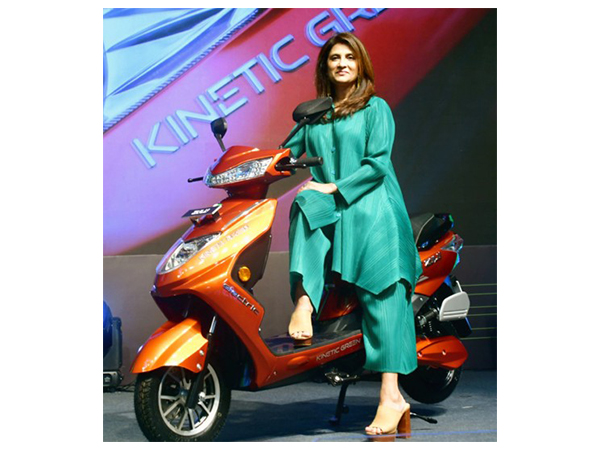New Delhi [India], July 20 (ANI): Sulajja Firodia Motwani, Founder and CEO of Kinetic Green, has called for government intervention in the rare-earth materials issue, stating that while the Indian electric vehicle (EV) sector has managed to cope in the short term, it will face significant challenges ahead, as “it’s not easy to change your product design and supply chain.”
Kinetic Green founder emphasised that it could take at least two to three years for the players in the automobile sector to localise the supply chain or adopt alternative technologies.
“It will impact the industry if it’s not solved because it’s not easy to change your product design and supply chain. The EV sector is scrambling somehow to manage for the short run. But I think there has to be a government-to-government solution very soon in the medium term. Because it will take two to three years to try to localise the supply chain or change the technology altogether. So I think it’s important that this is resolved,” Sulajja Firodia Motwani said during the unveiling event of the company’s electric Luxury Golf & Lifestyle Cart in partnership with Tonino Lamborghini SpA of Italy.
She further added, “We faced a similar situation in COVID on semiconductors; if you remember, the government did follow through and resolve it. I’m hopeful that something will emerge from this.”
She added that until the issue is solved, the company is working on developing alternative technologies to mitigate the adverse impact of such restrictions arising from global geopolitical moves.
“But in the meantime, we are finding alternatives so that the business can continue, but it’s not ideal to do that, and also maybe not everybody can. So it (restrictions on rare-earth material by China) will impact the sector,” she added.
The central government has earmarked Rs 1,345 crore to incentivise rare earth magnets production in India.
For context, early this April, China announced a decision to implement export controls on certain rare earth-related items, pushing a supply shortage across the world, including India.
Meanwhile, India is in touch with the Chinese side, seeking predictability in the supply of rare earth metals — which had been put under the export controls regime by the Xi administration.
China’s overwhelming control of global rare earth processing – commanding over 90 per cent of the world’s magnet production capacity – has created significant vulnerabilities for industries worldwide. These materials are critical across multiple sectors, including automobiles, home appliances, and clean energy systems.Beyond China, there are only a few alternative suppliers of critical minerals.
The Union Cabinet in January 2025 approved the launch of the National Critical Mineral Mission (NCMM) with an expenditure of Rs 16,300 crore and an expected investment of Rs 18,000 crore by Public Sector Undertakings.
Recently, Union Minister for Coal and Mines G Kishan Reddy said the central government is actively encouraging private companies to mine and explore critical minerals overseas and bring them back into the country to serve the needs of the domestic industry.
Speaking on the incentives to the industry, Motwani said, “The government has to continue supporting the adoption of EVs. Once we come to, today we are at about 7-8 per cent EV. Once we come to 25-30 per cent EV, then we’ll have critical mass on supply chain, on scale, and on ecosystem.
“We have begun well, but we are far from done. The government must continue supporting the adoption of electric vehicles,” she added.
She further noted the resistance from traditional internal combustion engine (ICE) players who have vested interests in maintaining the status quo. “There is a large counterforce from existing ICE manufacturers who naturally want to protect their investments and may not wish to see EVs succeed. However, it’s encouraging that the government remains focused. Schemes like EMPS and the PM-eBus Sewa, lower GST rates, ecosystem support, and a strong Make-in-India push should continue to drive demand and adoption,” Kinetic Green founder asserted.(ANI)
Disclaimer: This story is auto-generated from a syndicated feed of ANI; only the image & headline may have been reworked by News Services Division of World News Network Inc Ltd and Palghar News and Pune News and World News
HINDI, MARATHI, GUJARATI, TAMIL, TELUGU, BENGALI, KANNADA, ORIYA, PUNJABI, URDU, MALAYALAM
For more details and packages











